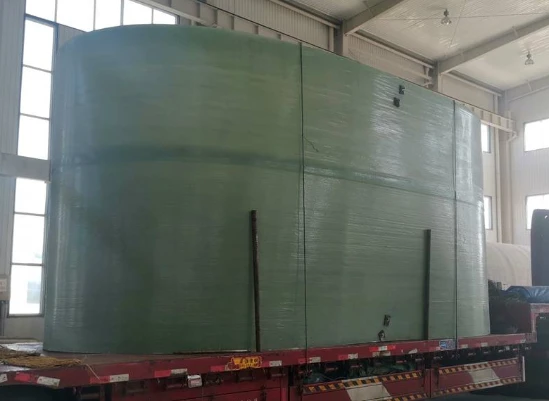
-
 Afrikaans
Afrikaans -
 Albanian
Albanian -
 Amharic
Amharic -
 Arabic
Arabic -
 Armenian
Armenian -
 Azerbaijani
Azerbaijani -
 Basque
Basque -
 Belarusian
Belarusian -
 Bengali
Bengali -
 Bosnian
Bosnian -
 Bulgarian
Bulgarian -
 Catalan
Catalan -
 Cebuano
Cebuano -
 China
China -
 China (Taiwan)
China (Taiwan) -
 Corsican
Corsican -
 Croatian
Croatian -
 Czech
Czech -
 Danish
Danish -
 Dutch
Dutch -
 English
English -
 Esperanto
Esperanto -
 Estonian
Estonian -
 Finnish
Finnish -
 French
French -
 Frisian
Frisian -
 Galician
Galician -
 Georgian
Georgian -
 German
German -
 Greek
Greek -
 Gujarati
Gujarati -
 Haitian Creole
Haitian Creole -
 hausa
hausa -
 hawaiian
hawaiian -
 Hebrew
Hebrew -
 Hindi
Hindi -
 Miao
Miao -
 Hungarian
Hungarian -
 Icelandic
Icelandic -
 igbo
igbo -
 Indonesian
Indonesian -
 irish
irish -
 Italian
Italian -
 Japanese
Japanese -
 Javanese
Javanese -
 Kannada
Kannada -
 kazakh
kazakh -
 Khmer
Khmer -
 Rwandese
Rwandese -
 Korean
Korean -
 Kurdish
Kurdish -
 Kyrgyz
Kyrgyz -
 Lao
Lao -
 Latin
Latin -
 Latvian
Latvian -
 Lithuanian
Lithuanian -
 Luxembourgish
Luxembourgish -
 Macedonian
Macedonian -
 Malgashi
Malgashi -
 Malay
Malay -
 Malayalam
Malayalam -
 Maltese
Maltese -
 Maori
Maori -
 Marathi
Marathi -
 Mongolian
Mongolian -
 Myanmar
Myanmar -
 Nepali
Nepali -
 Norwegian
Norwegian -
 Norwegian
Norwegian -
 Occitan
Occitan -
 Pashto
Pashto -
 Persian
Persian -
 Polish
Polish -
 Portuguese
Portuguese -
 Punjabi
Punjabi -
 Romanian
Romanian -
 Russian
Russian -
 Samoan
Samoan -
 Scottish Gaelic
Scottish Gaelic -
 Serbian
Serbian -
 Sesotho
Sesotho -
 Shona
Shona -
 Sindhi
Sindhi -
 Sinhala
Sinhala -
 Slovak
Slovak -
 Slovenian
Slovenian -
 Somali
Somali -
 Spanish
Spanish -
 Sundanese
Sundanese -
 Swahili
Swahili -
 Swedish
Swedish -
 Tagalog
Tagalog -
 Tajik
Tajik -
 Tamil
Tamil -
 Tatar
Tatar -
 Telugu
Telugu -
 Thai
Thai -
 Turkish
Turkish -
 Turkmen
Turkmen -
 Ukrainian
Ukrainian -
 Urdu
Urdu -
 Uighur
Uighur -
 Uzbek
Uzbek -
 Vietnamese
Vietnamese -
 Welsh
Welsh -
 Bantu
Bantu -
 Yiddish
Yiddish -
 Yoruba
Yoruba -
 Zulu
Zulu
Jan . 17, 2025 05:10
Back to list
Fans & Dampers & Demisters
Fiber Reinforced Plastic (FRP) valves represent a breakthrough in fluid control systems, offering superior performance in harsh environments where traditional materials might falter. The modern industrial landscape seeks equipment that can withstand extreme conditions, maintain high durability, and deliver reliable performance. FRP valves meet these criteria, providing an ideal solution for sectors such as chemical processing, wastewater management, and seawater applications.
Experts in fluid dynamics and materials engineering consistently validate the performance and benefits of FRP valves. Academic and industrial research reveal the low maintenance requirements and operational longevity of FRP valves compared to traditional alternatives. This body of research confers an authoritative stance on the use of these valves, encouraging their adoption across various industries. The manufacturing of FRP valves also contributes to their environmental friendliness. As industries pivot towards sustainable practices, FRP valves emerge as a preferable choice due to their reduced carbon footprint during production and longer operational life that minimizes waste generation. Trust in FRP valves is bolstered by industry certifications and compliance with international standards. Manufacturers engage in rigorous testing processes to ensure that each product meets stringent performance metrics. Certifications from bodies such as the American Society for Testing and Materials (ASTM) and the International Organization for Standardization (ISO) provide assurance to end-users about the quality and reliability of the valves. For professionals considering the integration of FRP valves into their systems, firsthand experiences and case studies are pivotal. Engineers report significant improvements in system performance and cost efficiency post-adoption of FRP valves. Feedback from plant supervisors and maintenance teams frequently highlights the decrease in unscheduled downtime and reduced frequency of part replacements, further reinforcing the trustworthiness and efficacy of these components. In conclusion, FRP valves are not merely an alternative to conventional options; they are a transformative force within industries sensitive to corrosion, weight, and durability challenges. Their extensive use in modern applications is prompted by their proven performance capabilities and substantial long-term economic benefits. As industries continually adapt to meet demanding operational standards and environmental considerations, FRP valves remain at the forefront as a reliable and authoritative option for fluid control needs.


Experts in fluid dynamics and materials engineering consistently validate the performance and benefits of FRP valves. Academic and industrial research reveal the low maintenance requirements and operational longevity of FRP valves compared to traditional alternatives. This body of research confers an authoritative stance on the use of these valves, encouraging their adoption across various industries. The manufacturing of FRP valves also contributes to their environmental friendliness. As industries pivot towards sustainable practices, FRP valves emerge as a preferable choice due to their reduced carbon footprint during production and longer operational life that minimizes waste generation. Trust in FRP valves is bolstered by industry certifications and compliance with international standards. Manufacturers engage in rigorous testing processes to ensure that each product meets stringent performance metrics. Certifications from bodies such as the American Society for Testing and Materials (ASTM) and the International Organization for Standardization (ISO) provide assurance to end-users about the quality and reliability of the valves. For professionals considering the integration of FRP valves into their systems, firsthand experiences and case studies are pivotal. Engineers report significant improvements in system performance and cost efficiency post-adoption of FRP valves. Feedback from plant supervisors and maintenance teams frequently highlights the decrease in unscheduled downtime and reduced frequency of part replacements, further reinforcing the trustworthiness and efficacy of these components. In conclusion, FRP valves are not merely an alternative to conventional options; they are a transformative force within industries sensitive to corrosion, weight, and durability challenges. Their extensive use in modern applications is prompted by their proven performance capabilities and substantial long-term economic benefits. As industries continually adapt to meet demanding operational standards and environmental considerations, FRP valves remain at the forefront as a reliable and authoritative option for fluid control needs.
Related Products









